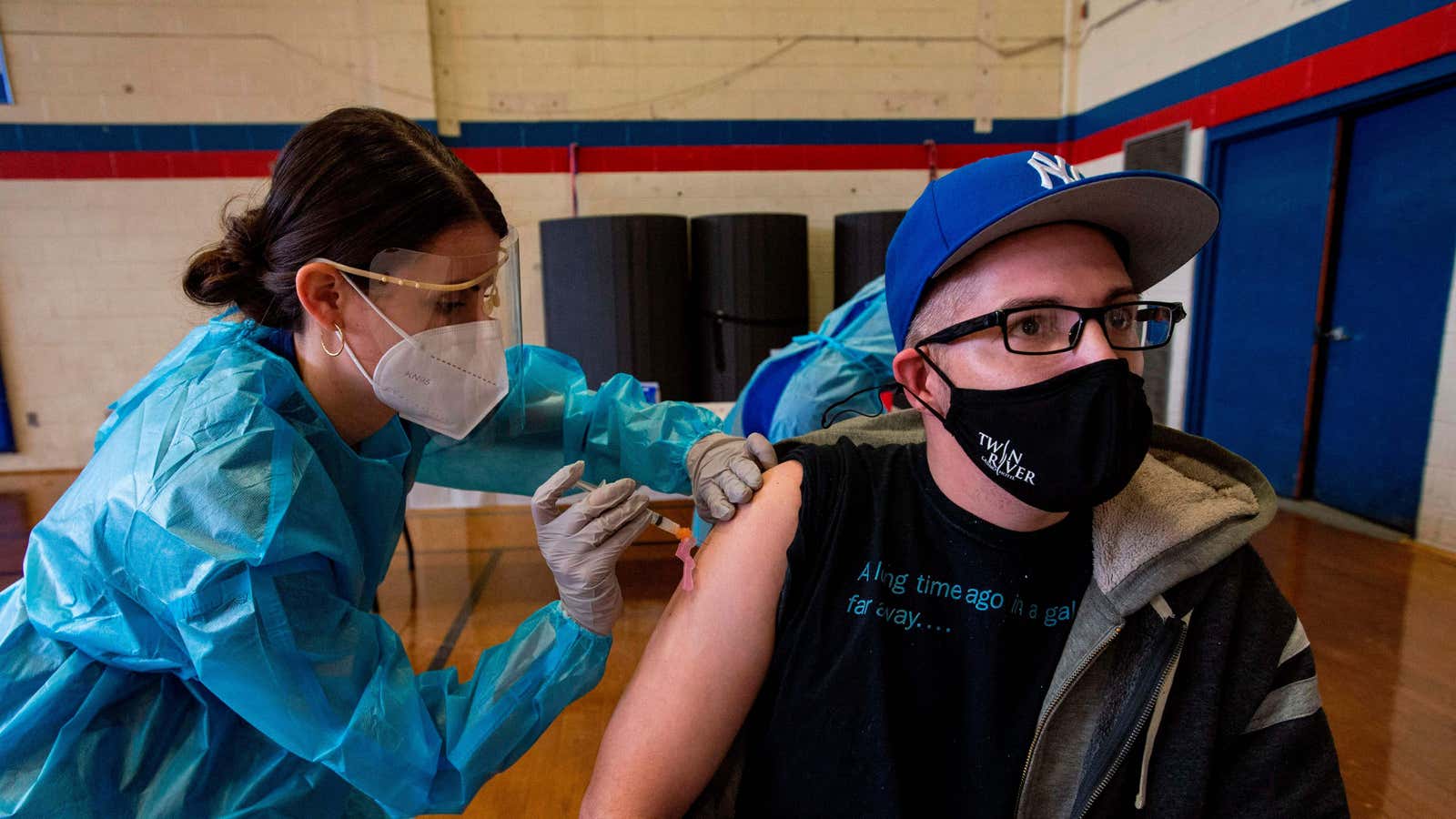Don’t Ask People Why They Were Vaccinated

Doses for any of the four COVID-19 vaccines currently in circulation are in demand around the world. Being wounded in the arm is cause for celebration – this is the most effective means of allowing humanity to finally prevent a pandemic that killed 525,000 Americans in a year.
It is understood that people advertise their vaccinations with joyful selfies, sharing their victories with friends, family, and the general public. But with selfies with vaccinations, the question arises: how did you get vaccinated?
Even in the midst of rampant vaccine jealousy, this question is not worth asking. The requirements for vaccination in the United States are well known at this time : to get vaccinated in your state, you must either be of a certain age or have at least one of a number of comorbidities. Not everyone wants to disclose if they have a medical condition that qualifies them to be vaccinated. And they shouldn’t have done it.
Not everyone wants their illness to be public
Someone you know may not have clear signs of the disease, but may have dealt with the disease their entire life. Uncovering a tough diagnosis like cancer is difficult when it comes to friends and family. When someone has to explain to someone they know that they have struggled with an illness for a long time, it can become an undue emotional burden on the person receiving the vaccine.
Before COVID-19, people with chronic illnesses already expected stigma and stigma in society at large. A 2011 study by researchers at Yale University and published by the National Institutes of Health examined the relationship between social stigma and chronic illness.
Researchers have noted how chronic diseases can spread in the lives of those who suffer from them, often in ways beyond their control.
People diagnosed with chronic illnesses report facing social rejection, being fired from their jobs, and poor health care due to their chronic illness. It is important to note that people living with chronic conditions may fear stigma. Expected stigma is the belief that prejudice, discrimination and stereotyping will be directed against the self by others in the future.
It is possible that the person who received the vaccine discloses their qualifications without much enthusiasm, fearing that they will think differently of him or be considered weak.
There is also a question about body mass index and obesity stigma. People with a BMI over 30 are eligible for the vaccine. This is a qualification that not everyone who is certified through BMI is thrilled with, and certainly anyone is entitled to keep this information confidential.
Are you curious if you ask
If someone is not among your immediate family or close friends, their health is none of your business. Moreover, you run the risk of making them feel guilty. While each dose is undoubtedly necessary, it remains true that people who receive doses may feel qualified through luck, and that there is someone else who needs it more.
You may be alienating someone who is already struggling with the difficult feelings that come with getting the vaccine. There are only a limited number of doses available, although the United States is expected to have enough vaccine for everyone who wants to be vaccinated by May. Given the slow and tedious process of vaccine distribution, it is possible that someone who has been vaccinated could suffer vaccine guilt, even if they have a comorbid condition that legally qualifies for the vaccine when supplies are limited.
The point is, don’t ask if you’re no longer in a relationship with the person, when both of you can express sincerity and vulnerability to each other. If you are not on these terms, just congratulate the person on the vaccination. Not all diseases are visible. Perhaps someone you know has diabetes or an autoimmune disease that allows them to meet the criteria. And if they don’t want you to know about their health, they have the right not to tell you.